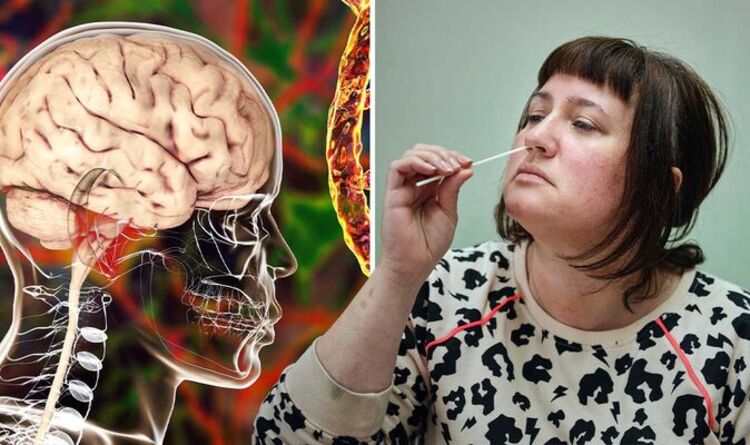Long Covid victim discusses daily impact of virus
We use your sign-up to provide content in ways you’ve consented to and to improve our understanding of you. This may include adverts from us and 3rd parties based on our understanding. You can unsubscribe at any time. More info
While some long-term effects of the Covid infection are well-known, others are still being discovered. From brain fog to persisting fatigue, many struggle with so-called long Covid for months after the infection. Now, researchers from Oxford University decided to focus on the impact of Covid on the brain.
Your brain is as complex as they come. It controls thoughts, memory, emotions, touch, vision, breathing and many more functions.
This organ combined with the spinal cord makes up your central nervous system.
A new study published in the journal Nature has compared the brain scans of people before and after they had coronavirus.
One of their findings was that participants who were infected with the virus showed “greater cognitive decline”.

In case you’re not aware, cognitive decline describes worsening or more frequent confusion and memory loss, according to the Centers for Disease Control and Prevention.
The health body adds that cognitive decline is a form of impairment and one of the earliest symptoms of dementia.
The study shares that this cognitive decline was linked to the atrophy of a specific part of the brain structure associated with cognition called the cerebellum.
Unfortunately, these changes are “specific to COVID-19” and not triggered by generic impacts of respiratory illnesses.
What’s more, the study also found some brain tissue damage and shrinkage in the organ as well.
To illustrate this, those with Covid lost an additional 1.8 percent of a key area called the parahippocampal gyrus, and an additional 0.8 percent from the cerebellum.
These effects were more significant in older people and those hospitalised with the disease.
However, they were still evident in those who had a mild or asymptomatic infection as well.

However, there’s some good news. The scientists are currently not sure if the effects will persist in the long term or can be partially reversed.
They said further investigation will be needed.
So far, the study looked at 785 people aged between 51 and 81 in total.
These participants received brain scans before and during the pandemic as part of the UK Biobank study.

While more than half of these subjects tested positive for Covid in between those scans, the uninfected participants were used as a control group to observe the results.
Professor Gwenaëlle Douaud, the lead author of the study, said: “Despite the infection being mild for 96 percent of our participants, we saw a greater loss of grey matter volume, and greater tissue damage in the infected participants, on average 4.5 months after infection.
“They also showed greater decline in their mental abilities to perform complex tasks, and this mental worsening was partly related to these brain abnormalities.
“A key question for future brain imaging studies is to see if this brain tissue damage resolves over the longer term.”
Source: Read Full Article
